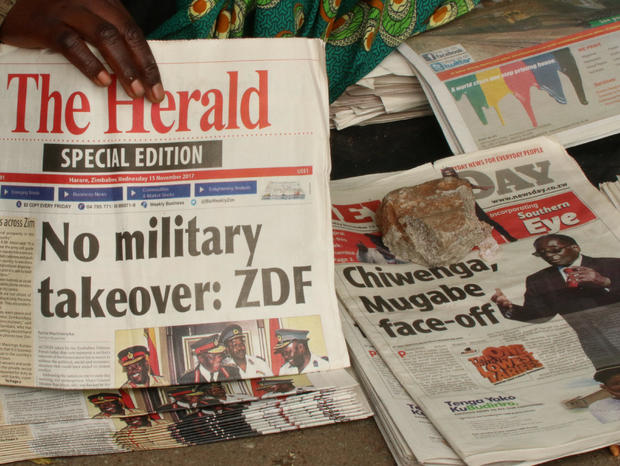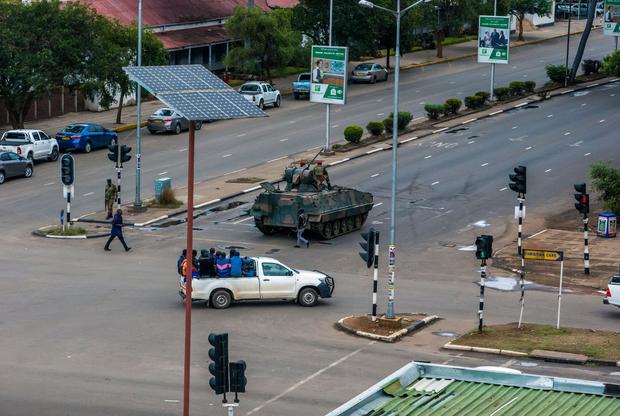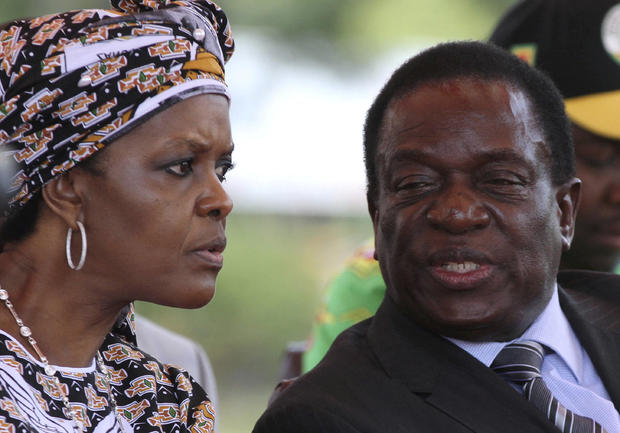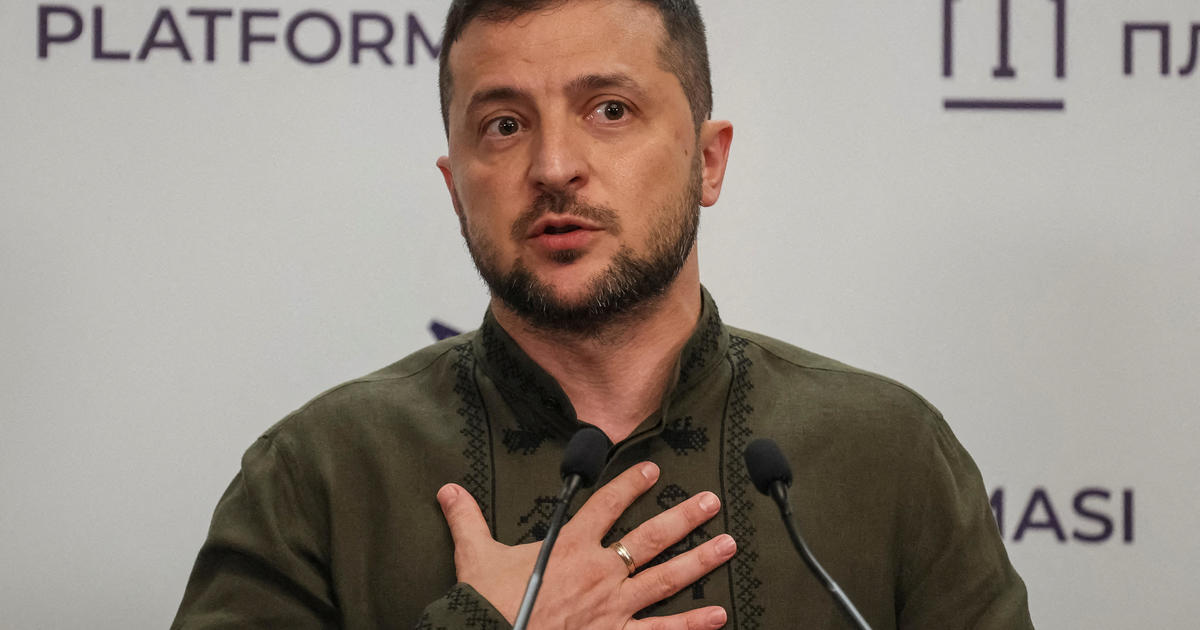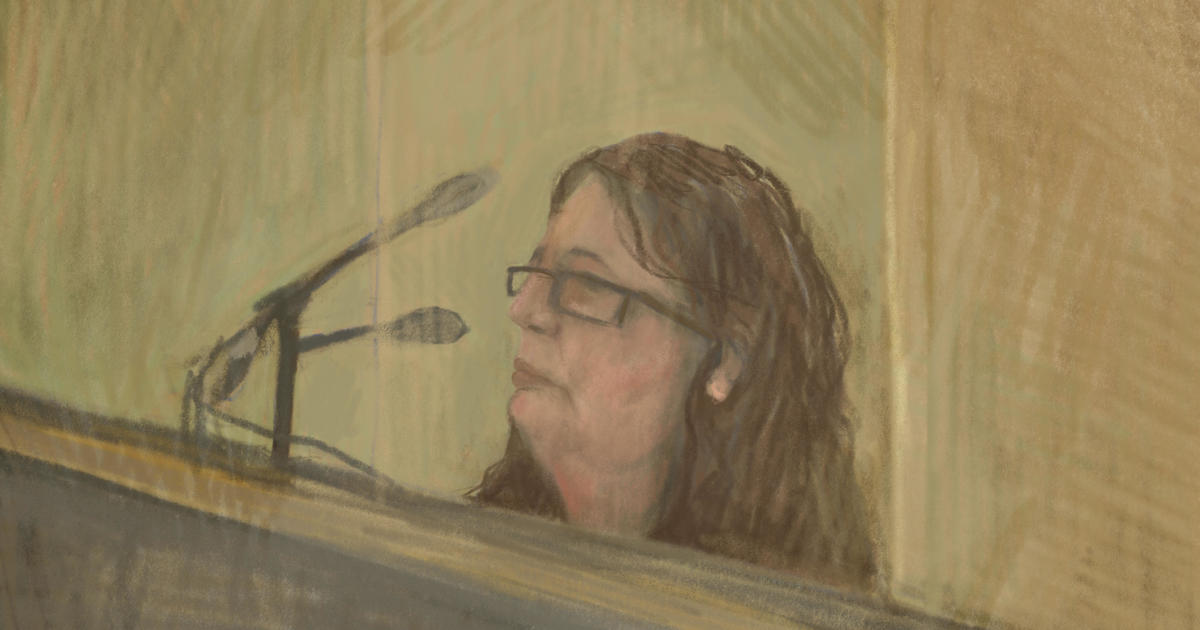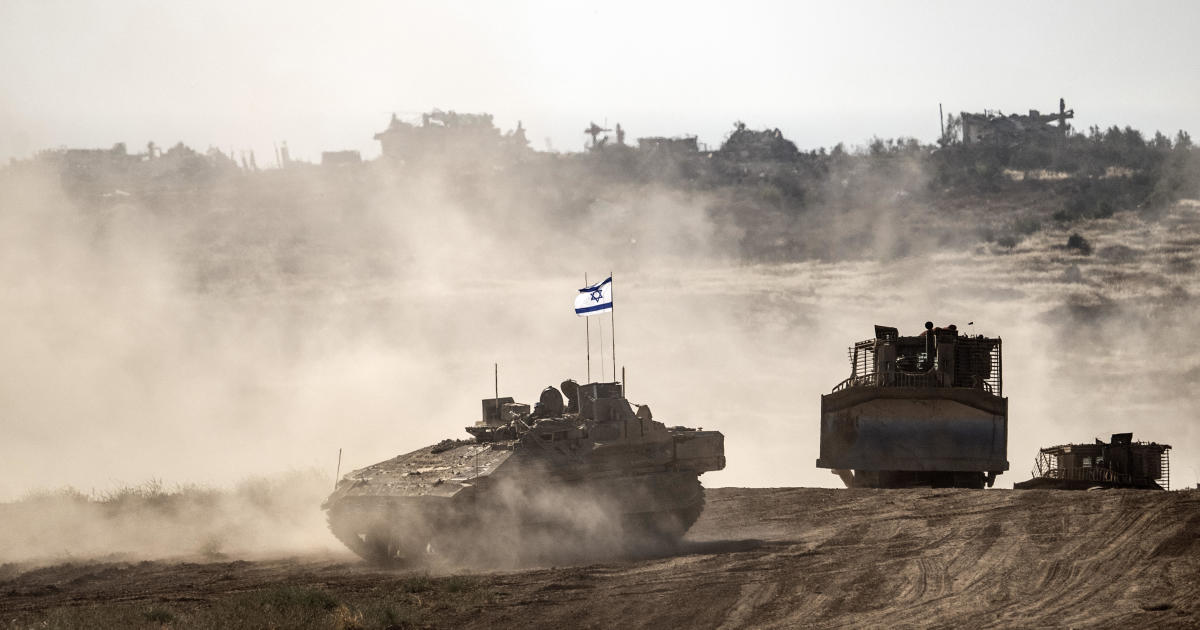U.S. monitoring "fluid" situation in Zimbabwe
The U.S. State Department said Wednesday it has no knowledge of any citizens being injured or arrested in Zimbabwe one day after it appeared the military had taken over the capital and the state broadcaster.
A State Department official told CBS News they are monitoring the situation, which remains "fluid," and will send updates as it become clearer. Due to the uncertainity, the U.S. Embassy in Zimbabwe's capital, Harare, will be minimally staffed and closed to the public on Wednesday.
"The United States does not take sides in matters of internal Zimbabwean politics and does not condone military intervention in political processes," the State Department said.
Zimbabwe's army said Wednesday that it had 37-year leader President Robert Mugabe and his wife, Grace Mugabe, in custody under house arrest.
CBS News correspondent Debora Patta reports that while the military and its backers refuse to call it a coup, it certainly has all the hallmarks of one, and one of Africa's longest-standing dictators could be forced to step down.
In Harare, conditions on the ground are "not what one would expect," investigative journalist Maynard Manyowa told CBSN on Wednesday. People were walking freely and while there was a military presence, the mood of the people was almost "joyous," Manyowa said.
"The idea that Mugabe could have been deposed, or that Zimbabwe could be free from his rule, is one that is quite exciting," Manyowa said.
Many who have never known any leader but Mugabe waited in long lines at banks to draw limited amounts of cash, a result of this once-prosperous country's plummeting economy.
Felix Tsanganyiso, who sells mobile airtime vouchers in Harare, said he was following the developments on WhatsApp.
"But I am still in the dark about what is happening," he said. "So far so good. We are going about our business without harassment. My plea is that whoever takes over should sort out the economy. We are tired of living like this."
The series of whiplash events followed Mugabe's firing last week of his deputy, which appeared to position the first lady, Grace Mugabe, to replace Emmerson Mnangagwa as one of the country's two vice presidents at a party conference next month.
But the 52-year-old first lady is unpopular among many Zimbabweans for her lavish spending on mansions, cars and jewels. Last month she went to court to sue a diamond dealer for not supplying her with a 100-carat diamond that she said she had paid for.
Grace Mugabe has been known as the leader of the G40, a group of Cabinet ministers and officials in their 40s and 50s who are too young to have fought in Zimbabwe's war to end white-minority rule in Rhodesia. When Mnangagwa was fired, the generals and war veterans felt they were being sidelined and took action to stop that, analysts say.
Mnangagwa's whereabouts were not clear Wednesday. He fled the country last week, citing threats to himself and his family.
Critics of the government urged Mugabe to go quietly. "The old man should be allowed to rest," former Zimbabwe finance minister and activist Tendai Biti told South African broadcaster eNCA.
On Monday, the army commander made an unprecedented statement criticizing Mugabe for pushing aside veterans of the liberation war. The following day, the ruling party condemned the army leader for "treasonable conduct" and that evening the army sent armored personnel carriers into Harare and seized control of the state broadcaster and other strategic points, including Mugabe's residence.
In a televised address to the nation early Wednesday, Maj. Gen. Sibusiso Moyo said the army had "guaranteed" the safety of Mugabe and his wife, but added the military would target "criminals" around Mugabe, in an apparent reference to the first lady's G40 group.
South African President Jacob Zuma said he was sending his ministers of defense and state security to Zimbabwe to meet with Mugabe and the military there. He said he hopes Zimbabwe's army will respect the constitution and that the situation "is going to be controlled."
Who will rule Zimbabwe should become clearer in the coming days.
"There is a soft transition underway," said Zimbabwean analyst Alex Rusero.
"The whole idea is that the military has always been the chief broker" in Mugabe's ruling party, he said. "But there were attempts to sideline the military by G40 and (the military) are reasserting their position."
Mnangagwa may well be installed as a transitional leader to return Zimbabwe to constitutional rule, Rusero said.
Zimbabwe may enter a period of negotiation to get Mugabe to step down voluntarily, said Piers Pigou, southern Africa consultant for the International Crisis Group, who also suggested that Mnangagwa may be an interim leader.
"Zimbabwe could have some kind of inclusive government and some kind of democratic process, possibly leading to elections," Pigou said. "It's clearly a coup d'etat, but typical of Zimbabwe, the military is trying to put a veneer of legality on the process. ... It is part of the theater that Zimbabwe is so good at, to try to make things look orderly and democratic. South Africa and other neighboring countries may be brought in to help put some lipstick on the pig."
